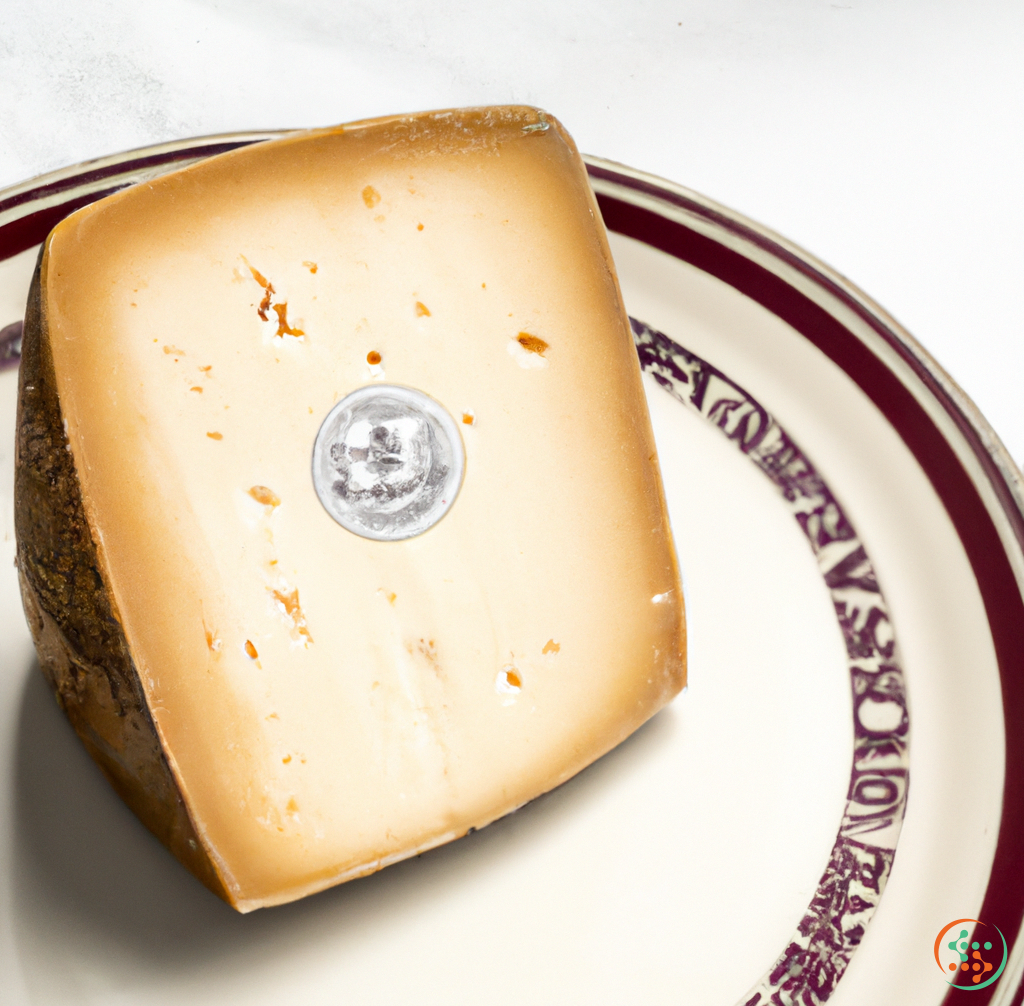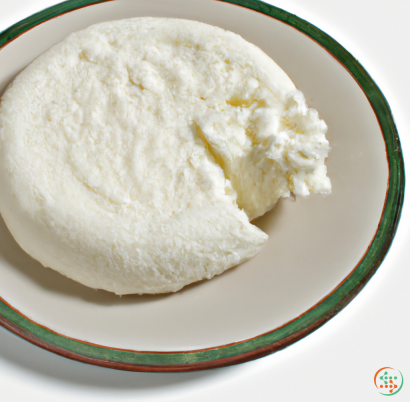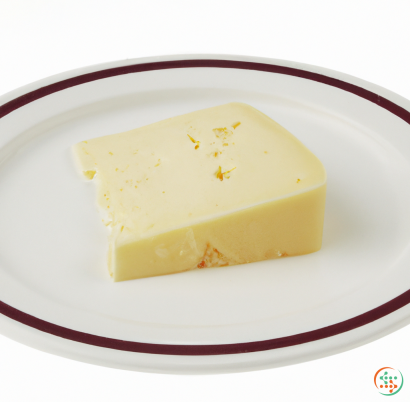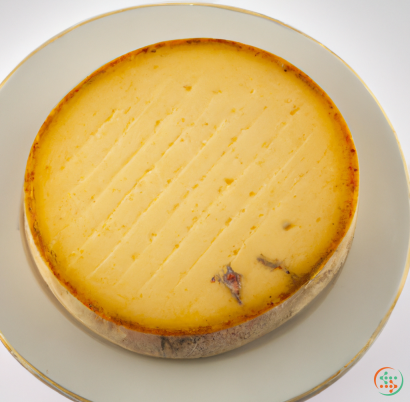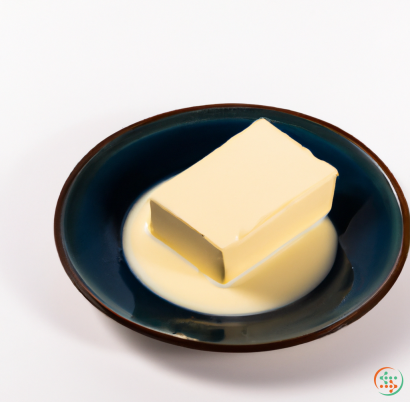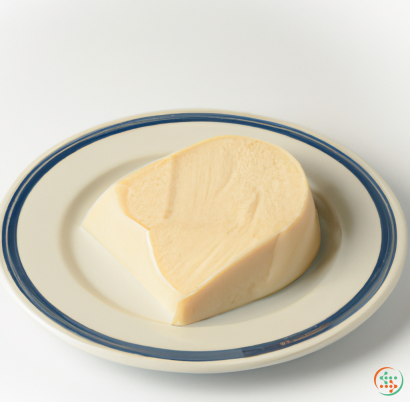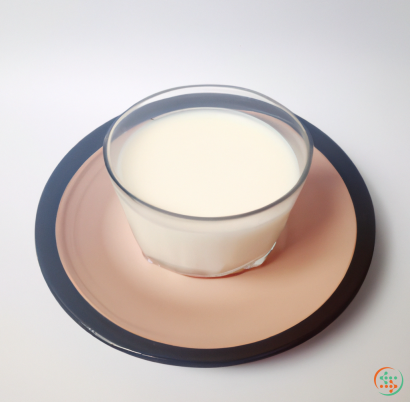Port De Salut Cheese
If you’ve ever strolled along the dairy aisle of your favorite supermarket, you may have come face to face with a seemingly vaguely familiar cheese that looks a bit too much like an unassuming pale yellow sponge. This cheese, you may have noticed is most likely surrounded by rounds of other cheeses and might even have caught your eye for a second before you moved on with your grocery mission. Little do many shoppers know this cheese known as Port de Salut should not be overlooked as it can offer a “je ne sais quoi” to any kitchen, picnic basket, or cheese board.
Port de Salut cheese is a semi-soft, velvety cheese with a creamy texture and a slightly salty, mild flavor that is sadly often overlooked due to its undistinctive appearance. In a competitive world of recently created and ever more exotic cheeses, old-fashioned varieties like Port De Salut can often be overlooked in favor of these new-age options. While interesting and complex varieties might garner most of the attention, let’s not underestimate the subtle simplicity that Port de Salut has to offer.
Originating in the Loire-Sauvage region of France, Port de Salut cheese was developed by the Trappist monks of the French abbey, Notre-Dame-de- Port many centuries ago. At this time, the cheese enjoyed great popularity all over Europe, and still to this day the cheese, “remains popular in the countries of the old European focus, particularly in France and Scandinavia.” While the Trappist monks no longer produce the cheese, their original methods and recipes are still used by the current producers.
Port De Salut cheese is an edible, red-rinded cheese encased in an orange, nuttyy-buttery rind that is edible but may be a bit hard to digest. Its flavor is subtle and very much in line with other Trappist-style cheeses, being simultaneously creamy and delicately salty with just a hint of mellow nuttiness at the end. The cheese melts beautifully and melts fried eggs, omelets, and grilled sandwiches alike. Its semi-soft yet spreadable texture makes it ideal for slicing or crumbling over salads or baked into pastries.
Port de Salut cheese is best enjoyed as part of an array of accompaniments that include but are by no means limited to various local fruits and nuts, charcuterie, and robust breads. When picking wines to pair with Port de Salut, try for a dry sparkling wine, a smooth and slightly sweet Muscat, an aromatic rosé or even an off-dry Riesling.
In conclusion, it is worth celebrating the simple yet complex beauty of Port de Salut cheese, from its well-loved flavor to its humble Trappist origin. Whether you’re melting it on a slice of warm crusty bread or enjoying it with some local fruits and nuts, Port de Salut is a unpretentious Cheese with an Unrivalled Flavor that always stands out and is worth remembering.
It is widely accepted that few food products are as varied and multi-textured as cheese. From pungent to creamy, soft to hard, cheese is a widely used ingredient in a range of dishes, cooked and uncooked. In this blog post, the aim is to explore the intricacies of one such offering: the Port De Salut. We’ll journey through its production process, review its characteristics, discuss its chemistry and finally trace its path to the dinner plate.
Cheese Production 101
The production of cheese begins with the utilization of milk - either that taken from a cow, goat, sheep or any other lactating animal. In the Port De Salut’s case, it is typically made of pasteurised cow’s milk. Pasteurisation is a process where the milk is heated to a specific temperature for a set period of time, destroying any harmful bacteria in the product and ensuring the cheese produced is safe for human consumption.
Once the raw milk has been obtained and pasteurised, it is then poured into large tanks. Here, bacteria are added, such as ferments (to create lactic acid), propionibacteria (which convert lactic acid into carbon dioxide and give the cheese its characteristic holes) and Penicillium candidum (which gives the cheese its rind and inner yellow colouring).
From here, had-shaped ranckers are added to the milk, causing the milk proteins to coagulate. The milk will separate into two parts: a yellowish, firmer mass of milk proteins, known as curds, which form the body of cheese, plus a liquid residue, known as whey. The whey is drained from the curds, and the curds themselves are cut and heated to encourage further separation. The curds are then treated with salt, which helps to prevent the growth of spoilage bacteria and adds flavour.
The next step in the process is pressing and moulding. While heat and salt both encourage the drainage of whey, the pressing of the cheese helps to remove even more liquid and create a dense, uniform cheese body. With the Port De Salut, the cheese has to be treated with a yeast-like fungus called Geotrichum. This activates a lactose-converting bacteria, resulting in a creamy, buttery flavour in the cheese.
Geotrichum fungi is known to form an elastic film around the cheese -it helps bind the cheese together and gives it its resplendent exterior texture, which is usually the colour of straw. In the Port De Salut, the cheese has to be hand-pressed and folded into a tulip-like shape and then aged for at least two months. During this time, the cheese is regularly turned and salted, which encourages further flavour and rind development.
The Chemistry of Port De Salut
The Port De Salut isn’t just a physical object; there is a whole range of chemical processes and transformations that take place during its production and aging. To begin with, the proteins and fats of the milk proteins coagulate and form curds and whey. The curds are heated and cut to encourage the flow of whey, and the salt from the salt-curing process works together with rennet, a protein-coagulating enzyme, to form a solid mass. At the same time, bacterial and enzymatic action generate lactic acid, as well as converts some of the lactose sugar in the milk into flavoursome compounds.
The Geotrichum mould plays an important role here, too. As the mould breaks down proteins, aromas and compounds build up in the cheese, enhancing its flavour and creating a pleasant aroma. Similarly, the rind of the cheese is constantly transforming, as the enzymes in the rind react with oxygen, further intensifying and intricate flavour and creating a distinct, earthy aroma.
Tracking Port De Salut to the Plate
With the cheese now fully formed and matured, it is time for it to make its way to the plate. The cheese maker then collects it from the cave or production facility, vacuum seals it and sends it out to vendors.
At the vendors, where most cheese tends to be purchased these days, the cheese is wrapped in a protective coating and placed into special packaging. This ensures the cheese remains safe and well-preserved during its journey to its ultimate destination: the dinner plate.
Once in its final destination, the cheese is typically sliced and served with bread or crackers. From here, the person consuming the cheese is left to their own devices. How it is consumed is ultimately up to the individual, but our suggestion would be to enjoy it in thin slices, maybe with a dew drop of olive oil, a sprinkle of herbs, a light sourdough and a pinch of freshly cracked black pepper.
Conclusion
The Port De Salut is a truly extraordinary cheese, combining several processes, including raw milk pasteurisation, bacterial cultures, press and hand-moulding, salt-curing and rind formation. Ultimately, this results in something unique: a creamy and dense interior body, a pungent and complex aroma and a rounded and delicate flavour.
At the end of this blog post, you should now have gained a better appreciation for the intricacies of what goes into producing a Port De Salut cheese. From its production steps, its wide-ranging chemistry and its ultimate journey to the plate, there is far more behind this cheese than meets the eye. To say cheese-lovers will enjoy it is an understatement – the Port De Salut is an essential ingredient in virtually any fine cheeseboard.
| Vitamin A | 0.315 mg | |
| Beta-Carotene | 0.029 mg | |
| Vitamin D | 0.5 ug | |
| Vitamin D3 | 0.5 ug | |
| Vitamin E | 0.24 mg | |
| Vitamin K | 0.0024 mg | |
| Vitamin B1 | 0.01 mg | |
| Vitamin B2 | 0.24 mg | |
| Vitamin B3 | 0.06 mg | |
| Vitamin B4 | 0.0154 grams | |
| Vitamin B5 | 0.21 mg | |
| Vitamin B6 | 0.05 mg | |
| Vitamin B9 | 0.018 mg | |
| Vitamin B12 | 0.0015 mg |
| Calcium | 0.65 grams |
Daily Value 1.3 g
|
| Iron | 0.43 mg |
Daily Value 0.018 g
|
| Magnesium | 0.024 grams |
Daily Value 0.4 g
|
| Phosphorus | 0.36 grams |
Daily Value 1.25 g
|
| Potassium | 0.136 grams |
Daily Value 4.7 g
|
| Sodium | 0.534 grams |
Daily Value 2.3 g
|
| Zinc | 0.0026 grams |
Daily Value 0.011 g
|
| Copper | 0.02 mg |
Daily Value 0.9 mg
|
| Manganese | 0.01 mg |
Daily Value 0.0023 g
|
| Selenium | 0.0145 mg |
Daily Value 0.055 mg
|
| Tryptophan | 0.343 grams | |
| Threonine | 0.876 grams | |
| Isoleucine | 1.446 grams | |
| Leucine | 2.482 grams | |
| Lysine | 1.987 grams | |
| Methionine | 0.734 grams | |
| Cystine | 0.134 grams | |
| Phenylalanine | 1.323 grams | |
| Tyrosine | 1.42 grams | |
| Valine | 1.707 grams | |
| Arginine | 0.827 grams | |
| Histidine | 0.686 grams | |
| Alanine | 0.79 grams | |
| Aspartic Acid | 1.752 grams | |
| Glutamic Acid | 5.349 grams | |
| Glycine | 0.485 grams | |
| Proline | 2.892 grams | |
| Serine | 1.357 grams |
| Total Sugars | 0.6 grams |
per 100g
|
| Caproic acid (6:0) | 0.56 grams |
|
| Caprylic acid (8:0) | 0.34 grams |
|
| Capric acid (10:0) | 0.68 grams |
|
| Lauric acid (12:0) | 0.77 grams |
|
| Myristic acid (14:0) | 2.72 grams |
|
| Palmitic acid (16:0) | 6.64 grams |
|
| Stearic acid (18:0) | 3.35 grams |
|
| Butyric acid (4:0) | 1.03 grams |
|
| Total Saturated fatty acids: | 16.09 g | |
| Oleic acid (18:1) | 8.05 grams |
|
| Palmitoleic acid (16:1) | 0.83 grams |
|
| Total Monounsaturated fatty acids: | 8.88 g | |
| Linolenic acid (18:3) | 0.35 grams |
|
| Linoleic acid (18:2) | 0.38 grams |
|
| Total Polyunsaturated fatty acids: | 0.73 g | |
| Cholesterol | 0.12 grams |
|
| Total Sterols: | 0.12 g | |
